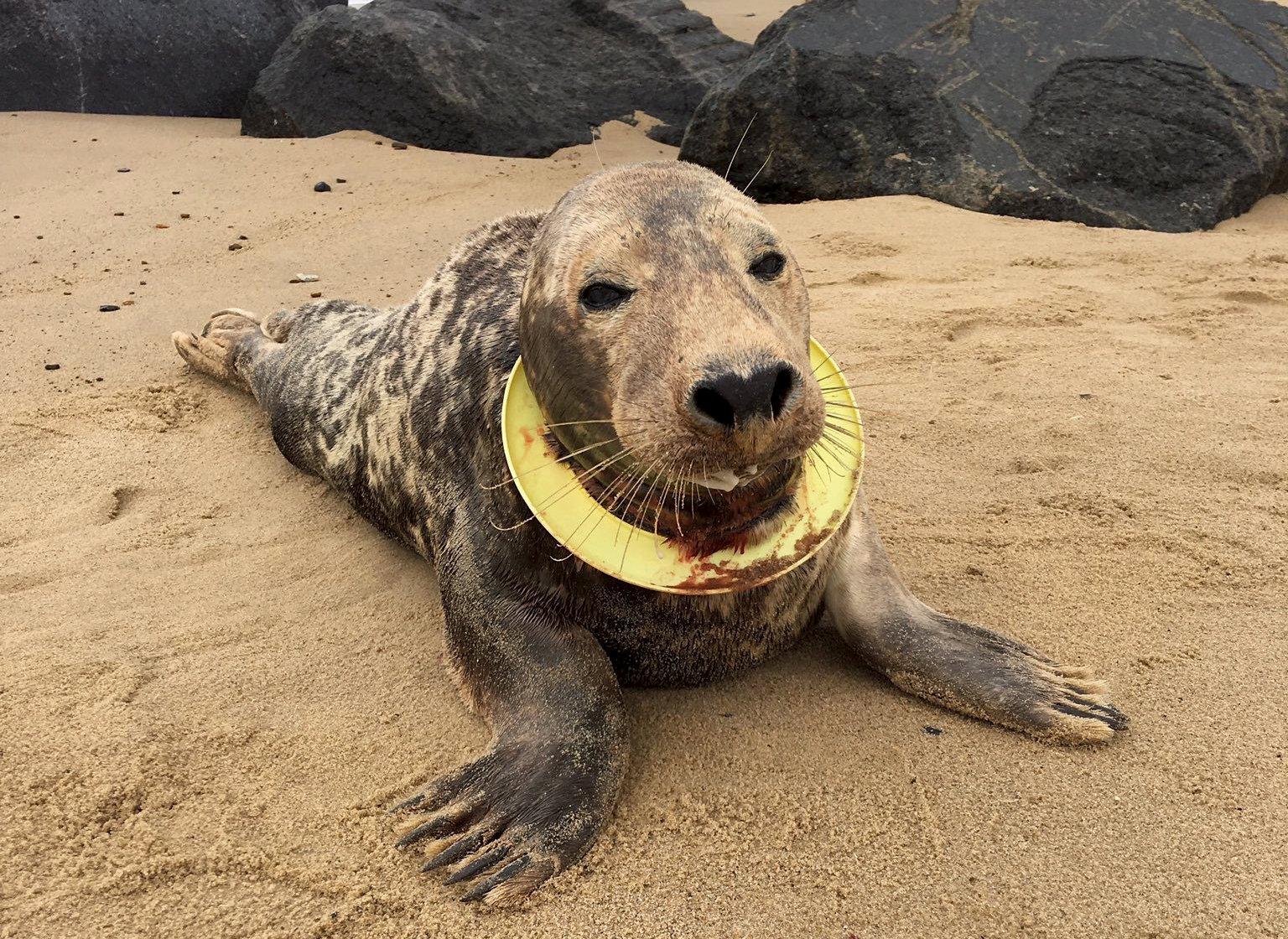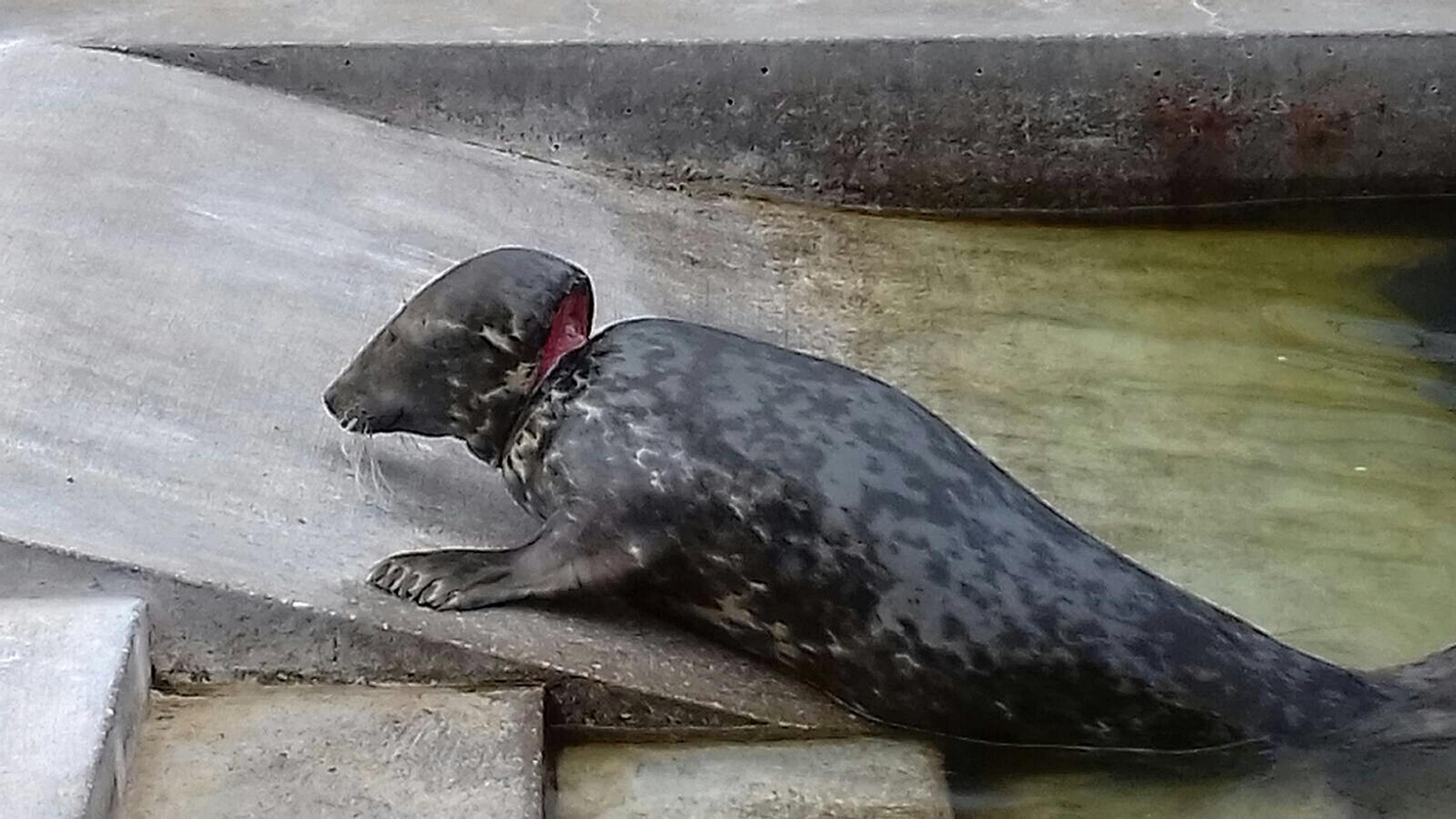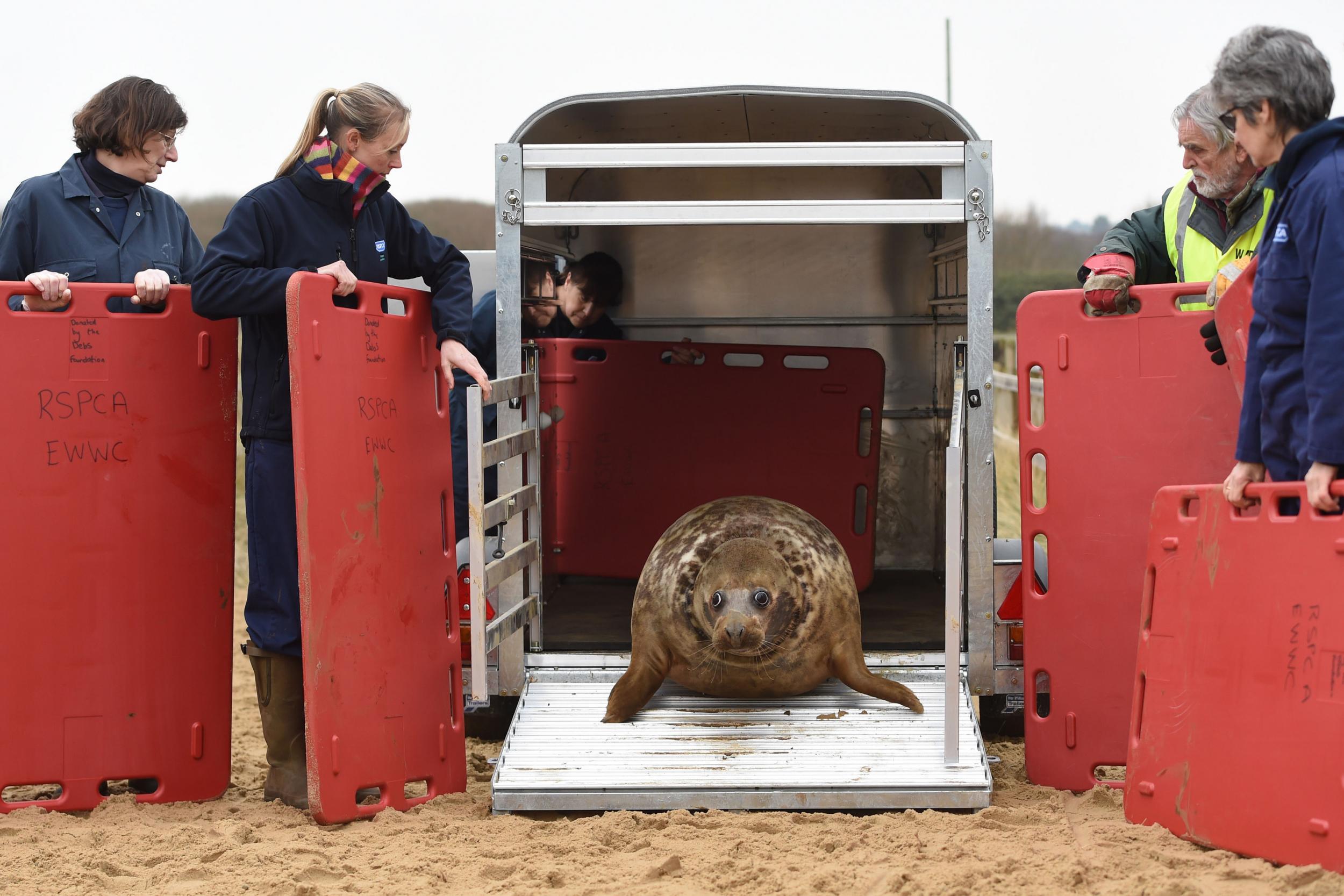Grey seal found with frisbee stuck around its neck released back to wild by RSPCA
Animal is thought to have swum with plastic ring on neck for six months before being rescued

Your support helps us to tell the story
From reproductive rights to climate change to Big Tech, The Independent is on the ground when the story is developing. Whether it's investigating the financials of Elon Musk's pro-Trump PAC or producing our latest documentary, 'The A Word', which shines a light on the American women fighting for reproductive rights, we know how important it is to parse out the facts from the messaging.
At such a critical moment in US history, we need reporters on the ground. Your donation allows us to keep sending journalists to speak to both sides of the story.
The Independent is trusted by Americans across the entire political spectrum. And unlike many other quality news outlets, we choose not to lock Americans out of our reporting and analysis with paywalls. We believe quality journalism should be available to everyone, paid for by those who can afford it.
Your support makes all the difference.A grey seal found seriously injured with her head stuck in a frisbee has been released back into the wild.
The seal is thought to have swum with the yellow plastic ring cutting into her neck for up to six months.
She was rescued starving to death and has undergone five months of rehabilitation at an RSPCA centre, where staff named her Frisbee.
Volunteers at Friends of Horsey Seals made several desperate attempts to rescue her after spotting the plastic ring embedded on her neck off Horsey Beach, Norfolk.
Her health deteriorated before they were over to get close to enough to catch her with a net and hand her over to the animal charity on 15 September.
A RSPCA spokesman said: “The adult female grey seal may have been swimming around with the yellow frisbee on her neck for up to six months, but despite efforts to catch her she would always be with a large group of seals and if one was spooked the whole group would disperse making it impossible to get near her.
“However, as her condition has slowly deteriorated, rescuers were able to get closer to her and when she was spotted on the beach yesterday the Friends of Horsey Seals were able to finally catch her.”
Frisbee was taken to the RSPCA East Winch Wildlife Centre only a month after the charity rescued another seal with a plastic ring around its neck.

Centre Manager Alison Charles said: “Seals are inquisitive creatures by nature, so it’s likely she spotted the frisbee in the water and went over to investigate and that’s how it became stuck round her neck. Over the months she has grown and as result it has become more and more embedded in her neck and it is likely that towards the end it would have been restricting her from eating and drinking.
“If someone does lose a frisbee on the beach, we would urge them to make efforts to find it, obviously only if it safe to do so, but if this frisbee had been picked up, this grey seal would not have had to endure so much pain and suffering over the last few months.”
Frisbee was nursed back to health with antibiotics, painkillers and steroids for the “ very deep and infected wound”.
She went through four 25kg bags of salts a day as part of her rehabilitation.

Ms Charles said: “Poor Frisbee was extremely emaciated when she came in and it will take a long while for her to gain weight again as she had clearly been starving for a long period of time.
“We cut the frisbee off, but once removed it was clear to see this awful deep wound on her neck, it was just horrible to see, the poor girl. Once removed, she started to shake her head, so I guess it was a relief to have it off after all those months. She then had a long drink of water.”
She added: “We are so grateful to the Friends of Horsey Seals for their perseverance in catching her, if they hadn’t got her, it’s likely she would have died. We are also grateful to the public for getting in touch when they spotted her at Horsey
“It is heart-breaking to think that this could have been prevented if people just took extra care with their litter on the coastline. Many people are just unaware of the problems discarded litter can cause for our wildlife.”
Join our commenting forum
Join thought-provoking conversations, follow other Independent readers and see their replies
Comments